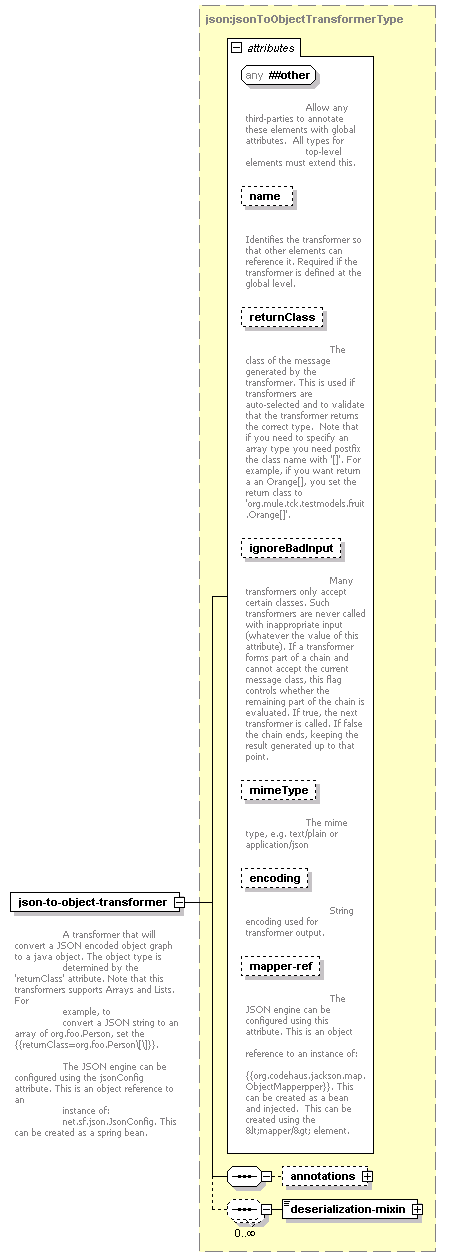
Namespace: |
|
Type: |
|
Content: |
complex, 6 attributes, attr. wildcard, 2 elements |
Subst.Gr: |
|
Defined: |
globally in mule-json.xsd; see XML source |
Used: |
never |

XML Representation Summary |
|||||||||||||||||||||
| <json-to-object-transformer | |||||||||||||||||||||
|
|||||||||||||||||||||
| {any attribute with non-schema namespace} | |||||||||||||||||||||
| > | |||||||||||||||||||||
|
|||||||||||||||||||||
| </json-to-object-transformer> | |||||||||||||||||||||
| <xsd:element name="json-to-object-transformer" substitutionGroup="mule:abstract-transformer" type="jsonToObjectTransformerType"/> |
| XML schema documentation generated with DocFlex/XML RE 1.8.5 using DocFlex/XML XSDDoc 2.5.0 template set. All content model diagrams generated by Altova XMLSpy via DocFlex/XML XMLSpy Integration. |